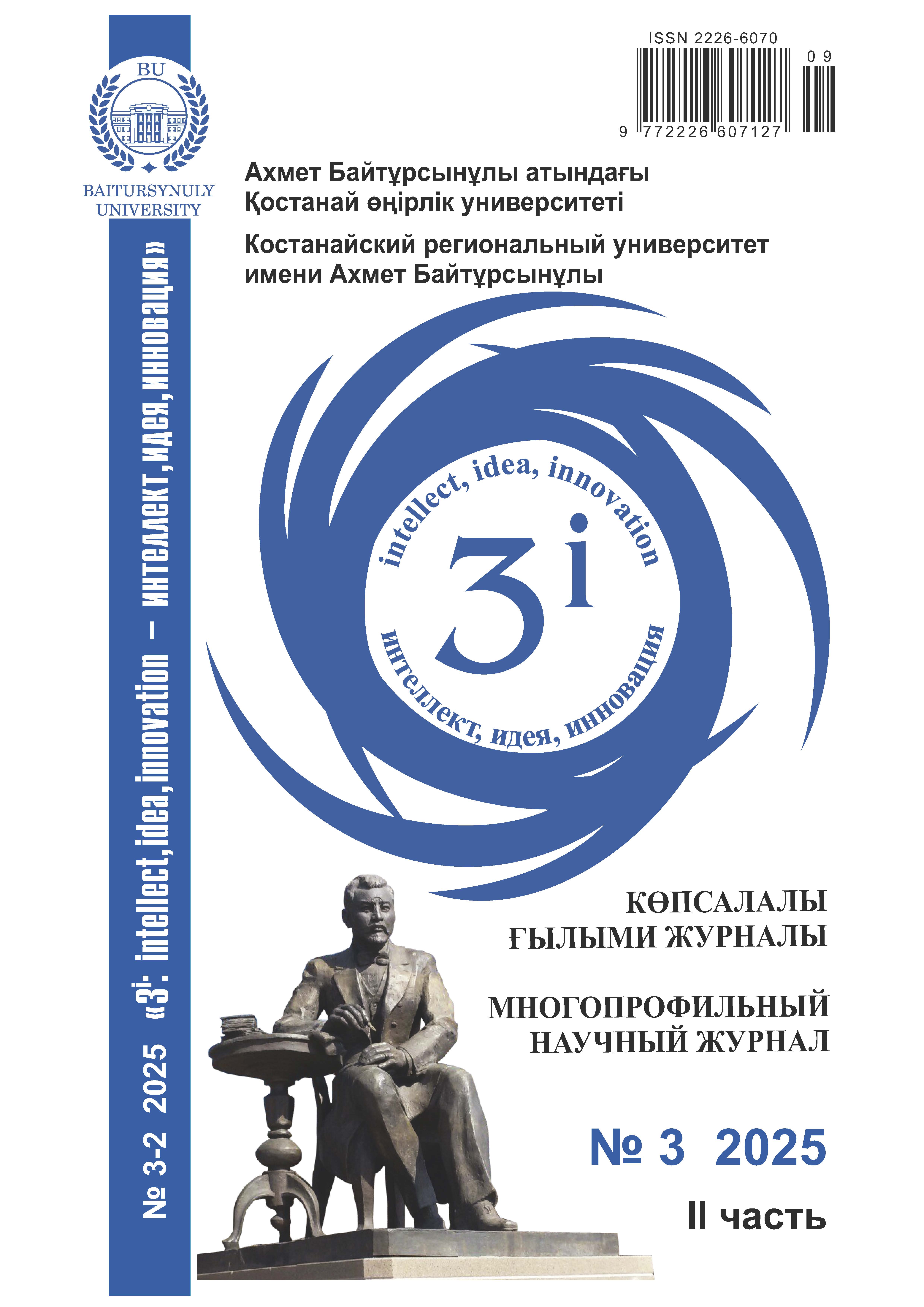ХИМИЯ ПӘНІН ОҚЫТУДА ОҚУШЫЛАРҒА ЭКОЛОГИЯЛЫҚ БІЛІМ БЕРУДІҢ МАҢЫЗЫ
DOI:
https://doi.org/10.52269/KGTD2532160Кілт сөздер:
химия, ғылыми-зерттеу жұмысы, қоршаған ортаны қорғау, экология, экологиялық білімАңдатпа
Мақалада жалпы білім беретін орта мектеп оқушыларына екі ірі ғылым – химия пәнін экологиямен байланыстыра отырып оқыту арқылы оқушыларға экологиялық білім берудің педагогикалық маңызы туралы ақпарат берілген. Еліміздің жалпы білім беретін барлық типтегі мектептерінде экологиялық білім беруге ерекше назар аударылып отыр. Сонымен бірге, экологиялық проблемалардың алдын алу мақсатында көптеген жобалар іске асырылып жатыр. Экологиялық проблема қазіргі күндегі өзекті мәселелердің бірі болып отырғандығы белгілі. Көптеген ғалымдарды да бұл тақырып толғандырмай қоймады. Сол себепті де, белгілі ғалымдардың мектепте химия курсында экологиялық білім беру туралы зерттеген еңбектеріне шолу жасалып, ғылыми-зерттеу барысында сынап көрген әдіс-тәсілдеріне талдау жасалды. Кейінгі ұрпақтың мектеп қабырғасынан бастап табиғатты қорғауға, өз ортасын құрметтеуге дағдыландыру жолдары қарастырылған. Мектеп оқушыларына қоршаған ортаның маңыздылығын түсіндіре отырып, бойларында экологиялық білім қалыптастыру арқылы қазіргі күндегі аудандық, мемлекеттік деңгейдегі көптеген актуалды мәселелердің түйінін шешу жолдары қарастырылған. Сонымен қатар, мақалада Ә.Науаи атындағы №13 мектеп-гимназиясының 8-шы сынып оушыларына жүргізілген зерттеулер нәтижелеріне талдау жасалынған. Зерттеуді оқушылардың жалпы химия сабағына қаншалықты белсене қатысуларына, жалпы тұлғалық қабілеттеріне бақылау жүргізуден бастап, әрі қарай білім алушылардың қабілетіне байланысты тапсырмалар ұсынылды. Педагогикалық эксперимент соңында оқушыларға зерттеу жүргізудің бастапқы кезеңінде берілген сауалнамалар екінші рет ұсынылып, зерттеуден бұрынғы және кейінгі нәтижелер салыстырылды.




